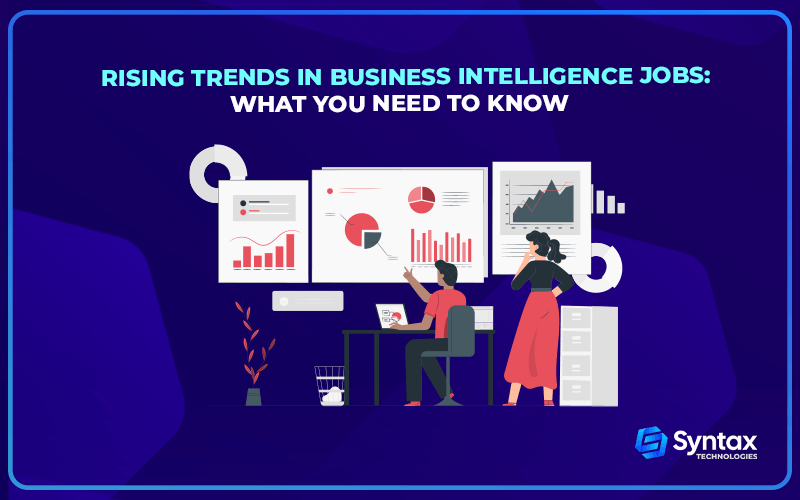In today’s data-driven world, businesses are increasingly relying on the power of Business Intelligence (BI) to gain valuable insights, make informed decisions, and stay ahead of the competition. As the landscape of BI continues to evolve, so do the demands placed on BI professionals. From data engineering and AI integration to data privacy and compliance, the domain of BI jobs is witnessing a dynamic transformation.
In this blog, we explore the top rising trends in the realm of Business Intelligence trends jobs and delve into the key skills and expertise that professionals must cultivate to thrive in this fast-paced and ever-changing industry.
Trends shaping the Business Operations Intelligence Job Market
The future of Business Intelligence job roles will be heavily influenced by an array of technological forces that are rapidly reshaping the Data Discovery Trend landscape. Firstly, the proliferation of advanced analytics and Artificial Intelligence (AI) will demand BI professionals with expertise in machine learning algorithms, natural language processing, and predictive modeling.
Secondly, the growing prominence of cloud-based BI Tools solutions will require professionals who can seamlessly integrate and manage data on various cloud platforms, ensuring scalability and cost-effectiveness.
Thirdly, as data privacy and security concerns escalate, BI experts with a comprehensive understanding of Data Quality Management, compliance regulations, and cybersecurity will become indispensable in safeguarding sensitive information.
Lastly, the continuous evolution of data visualization tools and techniques will necessitate BI professionals who have expertise in crafting visually compelling dashboards and reports, enabling businesses to derive meaningful insights at a glance.
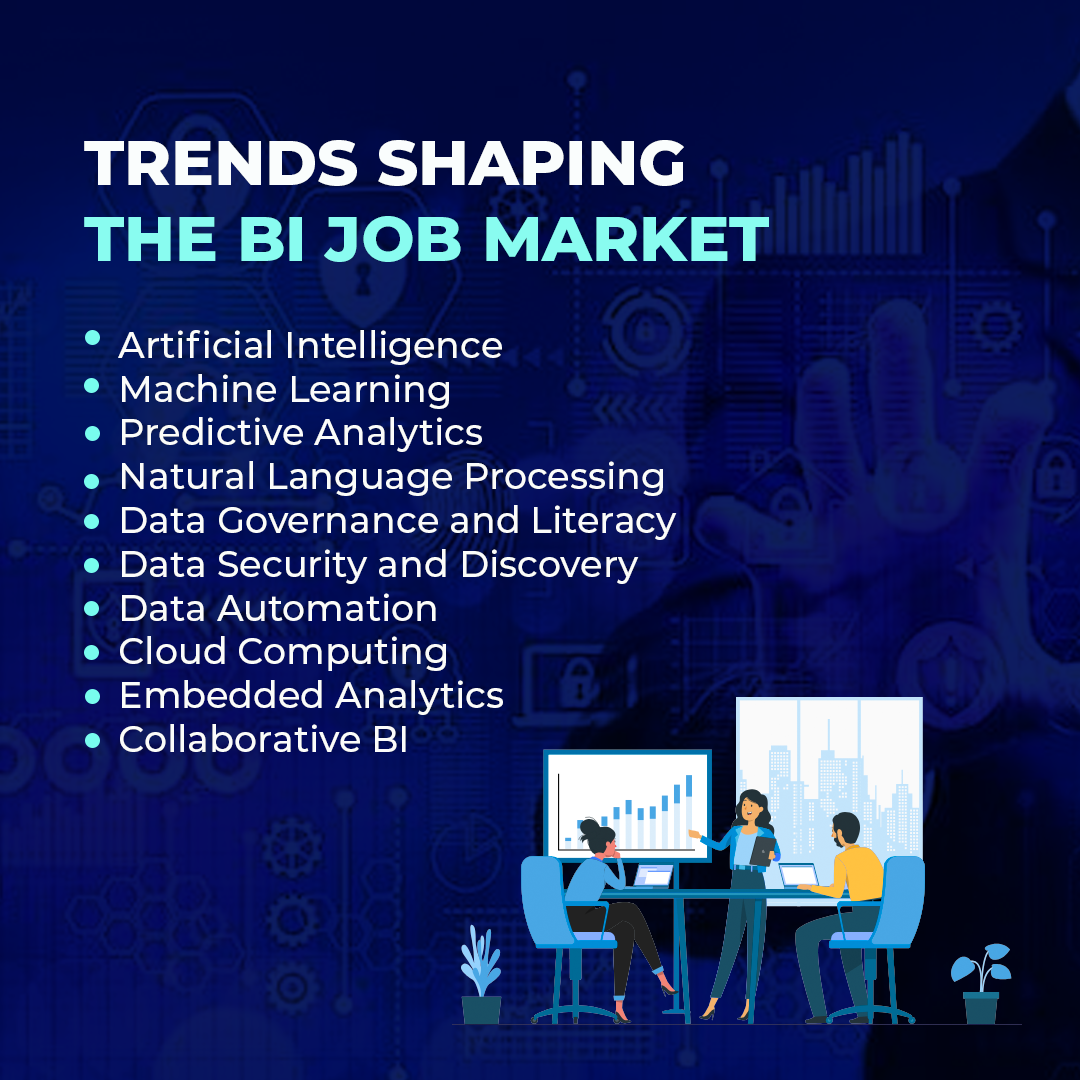
Futuristic Business Intelligence Jobs
In this section, we shall look at some of the prominent job roles within the field of BI which is likely to garner greater importance in the future.
Data Engineering and Data Integration Specialists
With the increasing volume and variety of data, there is a growing demand for BI professionals who specialize in data engineering and data integration. These professionals are responsible for designing, building, and maintaining data pipelines that collect, process, and store data from different sources, enabling smooth data integration and accessibility.
Data Engineering Specialists need to have a strong grasp of database systems, data warehousing, and ETL (Extract, Transform, Load) processes. They should be proficient in programming languages such as SQL, Python, or Java, as well as data modeling and database design.
Additionally, knowledge of cloud platforms like AWS, Azure, or Google Cloud is essential, as many organizations are moving their data infrastructure to the cloud.
The ability to troubleshoot and resolve data-related issues efficiently is vital in this role, ensuring a smooth and reliable data flow to support critical business processes and BI initiatives.
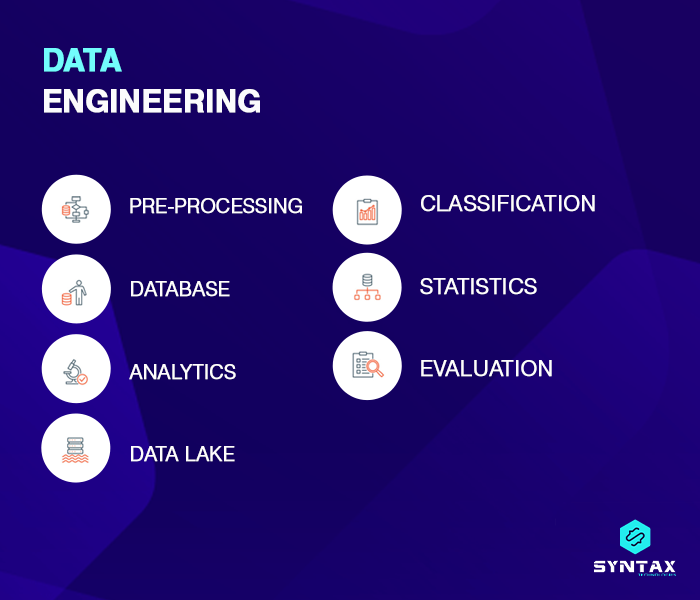
AI and Machine Learning Specialists
These specialists are responsible for developing and deploying machine learning algorithms that can identify patterns, trends, and correlations within the data, enabling predictive modeling and data-driven decision-making. Their role involves selecting appropriate machine learning models, preprocessing data, training models, and fine-tuning them for optimal performance.
AI and Machine Learning Specialists must possess a strong background in mathematics, statistics, and computer science. Proficiency in programming languages like Python, R, or Java is essential for implementing machine learning algorithms and working with large datasets.
A deep understanding of various machine learning frameworks and libraries, such as TensorFlow, Scikit-learn, or PyTorch, is essential to build and deploy models successfully.
Strong problem-solving skills, curiosity, and a passion for staying updated with the latest advancements in AI and machine learning are characteristics that define successful AI and Machine Learning Specialists.
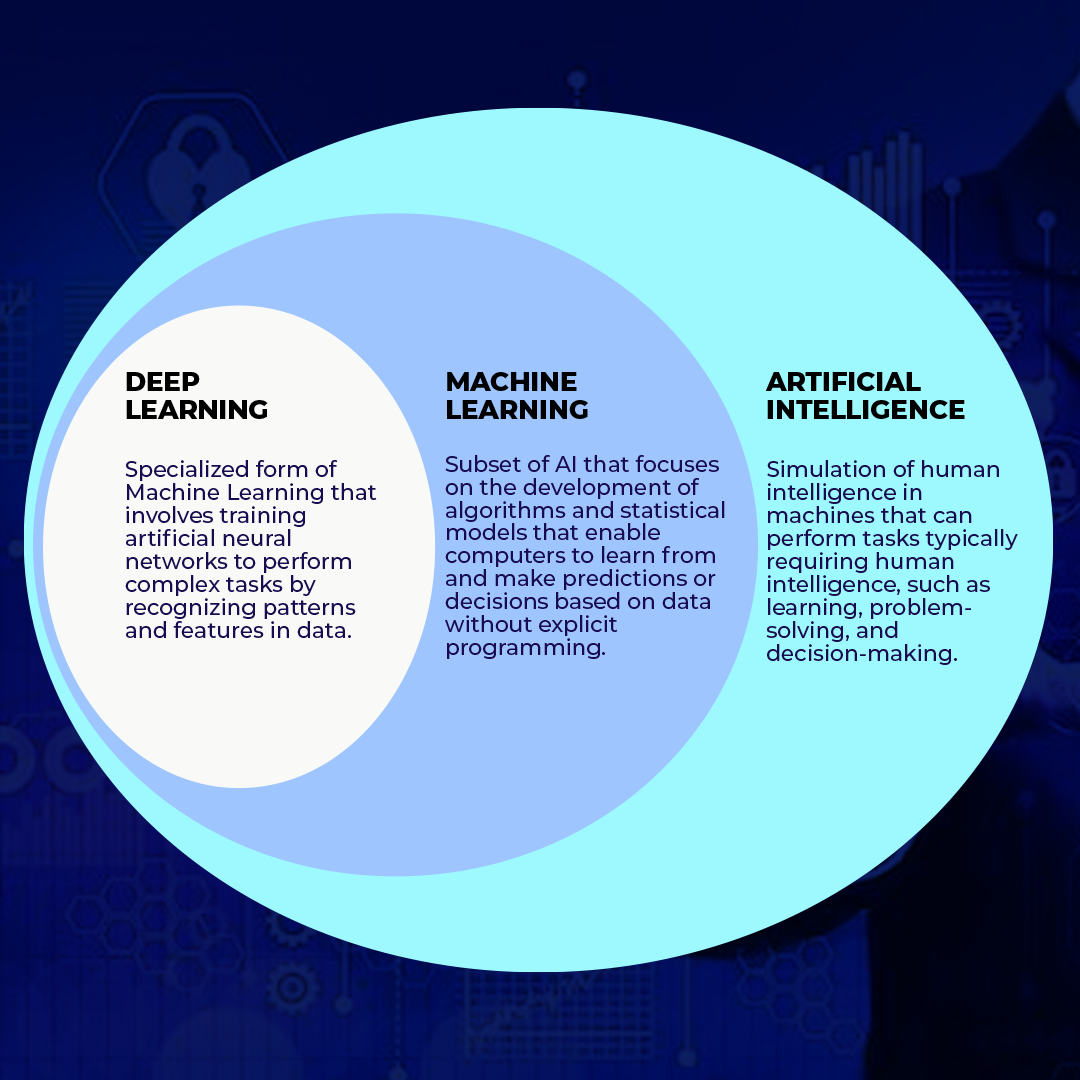
Data Privacy and Compliance Experts
As data privacy regulations become more stringent (e.g., GDPR, CCPA), companies are seeking BI professionals who understand data privacy laws and can implement measures to ensure compliance and protect sensitive information.
The primary responsibility of these individuals is to design and implement data privacy policies and procedures, conducting risk assessments to identify potential vulnerabilities in data handling processes. These experts work closely with cross-functional teams to establish and maintain data governance frameworks that promote data security, privacy, and ethical data usage.
They also stay updated with evolving data protection laws and industry standards to ensure that the organization remains compliant with data privacy regulations, such as GDPR, CCPA, HIPAA, or other regional data protection laws.
A background in data privacy laws and regulations, along with certifications such as Certified Information Privacy Professional (CIPP) or Certified Information Privacy Manager (CIPM), enhances the credibility and expertise of Data Privacy and Compliance Experts.
Cloud BI Experts
Their primary role revolves around designing, implementing, and maintaining BI systems and data warehouses on cloud platforms such as AWS, Azure, or Google Cloud. These experts are responsible for ensuring the seamless integration of data from various sources into the cloud environment, optimizing data storage and retrieval processes, and managing data security and access controls.
Proficiency in cloud platforms and services is a fundamental skill for Cloud BI Experts. They should be well-versed in cloud computing concepts, serverless architecture, and containerization technologies. In addition, expertise in data modeling, SQL, and ETL (Extract, Transform, Load) processes is crucial for managing and manipulating data in the cloud.
Data Visualization and UX Designers
Data Visualization and UX Designers play a vital role in the world of Business Intelligence by transforming complex data sets into visually compelling and easy-to-understand dashboards and reports. These designers collaborate closely with data analysts and stakeholders to understand data requirements and design data visualizations that effectively communicate key metrics and trends.
Data Visualization and UX Designers must have a deep understanding of data analysis and storytelling to present insights in a visually appealing manner. Proficiency in data visualization tools such as Tableau, Power BI, or D3.js is essential for creating interactive and dynamic visualizations. Additionally, knowledge of UX design principles and user research is crucial for designing intuitive and user-friendly interfaces.
Business Analysts with BI Skills
Their primary responsibility is to understand business requirements and translate them into data analysis and BI solutions that support decision-making processes. These analysts collaborate with business stakeholders to identify key performance indicators (KPIs) and data requirements, ensuring that the right data is collected and analyzed to address specific business challenges. They work closely with BI developers and data engineers to design and create reports, dashboards, and visualizations that provide meaningful insights and support strategic planning.
Business Analysts with BI Skills must possess a solid understanding of both business processes and data analytics. Proficiency in data analysis tools like Excel, SQL, and statistical software is essential for gathering and manipulating data efficiently.
Additionally, familiarity with business intelligence tools such as Tableau, Power BI, or QlikView is necessary for creating interactive and insightful data visualizations.
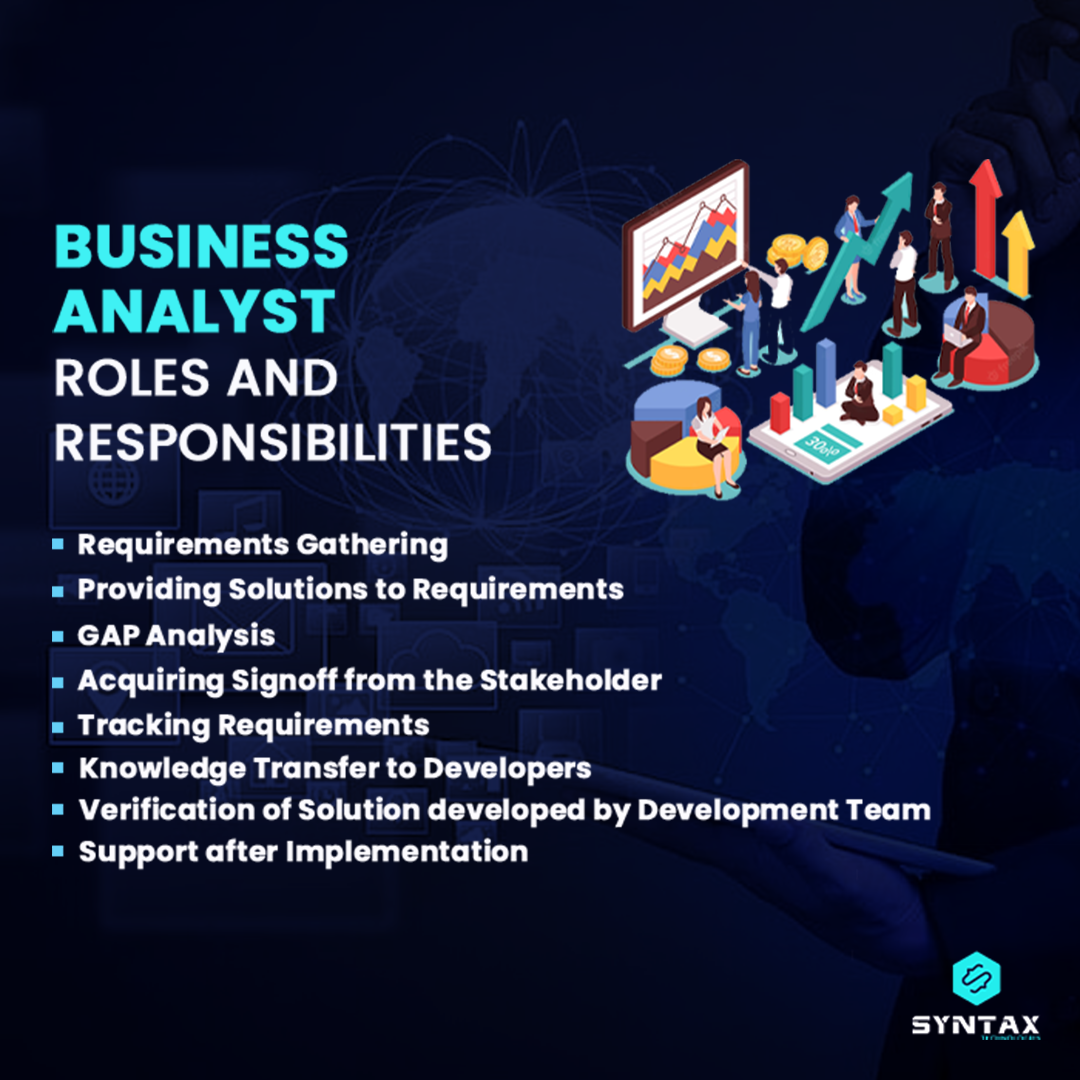
Real-Time Analytics Specialists
Their primary role revolves around implementing and managing real-time analytics solutions that enable businesses to access and analyze data in real-time, empowering them to make instant and informed decisions. These specialists are responsible for setting up real-time data pipelines, ensuring data is processed and updated continuously, and developing dashboards and reports that provide live insights.
Proficiency in streaming data technologies such as Apache Kafka or Apache Flink is essential for these specialists. They should also be skilled in real-time data visualization tools like Kibana, Grafana, or other similar platforms to present data in a timely and meaningful manner.
Strong problem-solving skills and the ability to troubleshoot and resolve issues related to data streaming and processing are crucial for ensuring real-time data accuracy and availability.
Articles you may like:
?Business Intelligence Automation: What Is It??
?Business Intelligence Reporting?
?What Are The Key Benefits Of Business Intelligence In Modern Organizations??
Conclusion
In conclusion, the Business Intelligence landscape is rapidly evolving and requires professionals with specialized skills to maximize data-driven insights. The roles discussed in this blog post are essential for any organization looking to leverage its data efficiently and gain competitive advantage. Companies should invest in these specialists who can provide valuable insights that drive successful business outcomes. With their combined skill sets, BI professionals have the potential to revolutionize standard industry practices and position organizations at the forefront of innovation.
It is evident that the field of Business Intelligence abounds in promising career prospects. We, at Syntax Technologies, provide you with the exceptional opportunity for developing skills in consonance with that of a BI expert. Enroll today.

